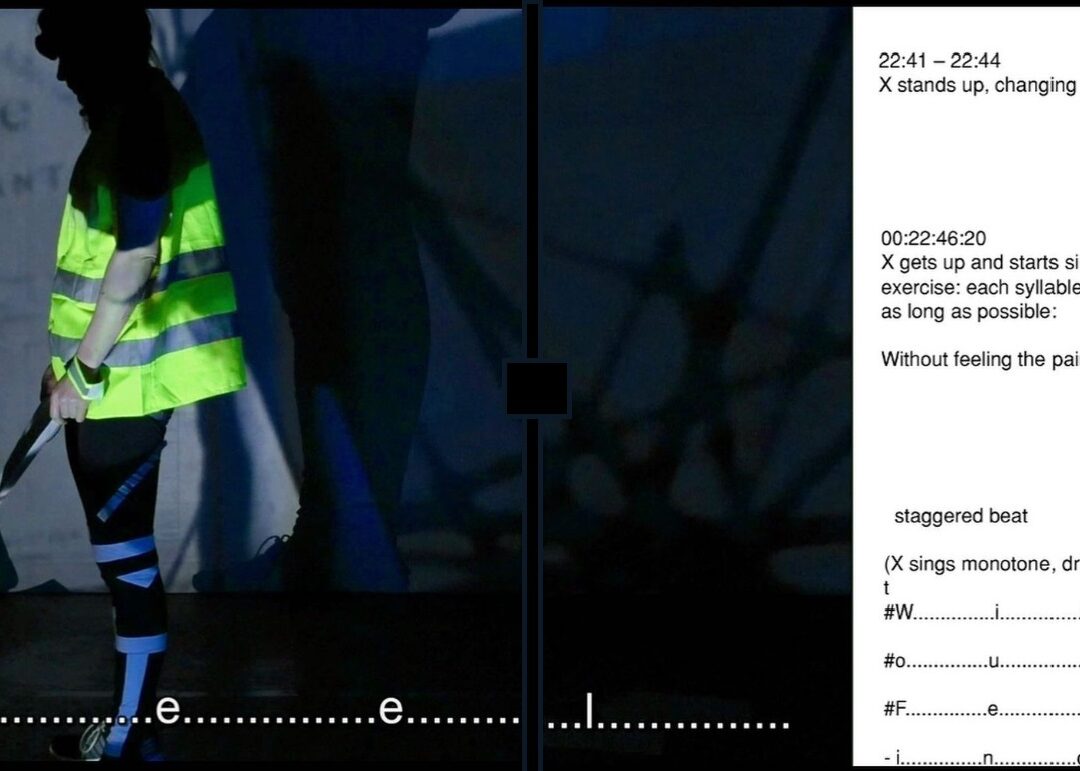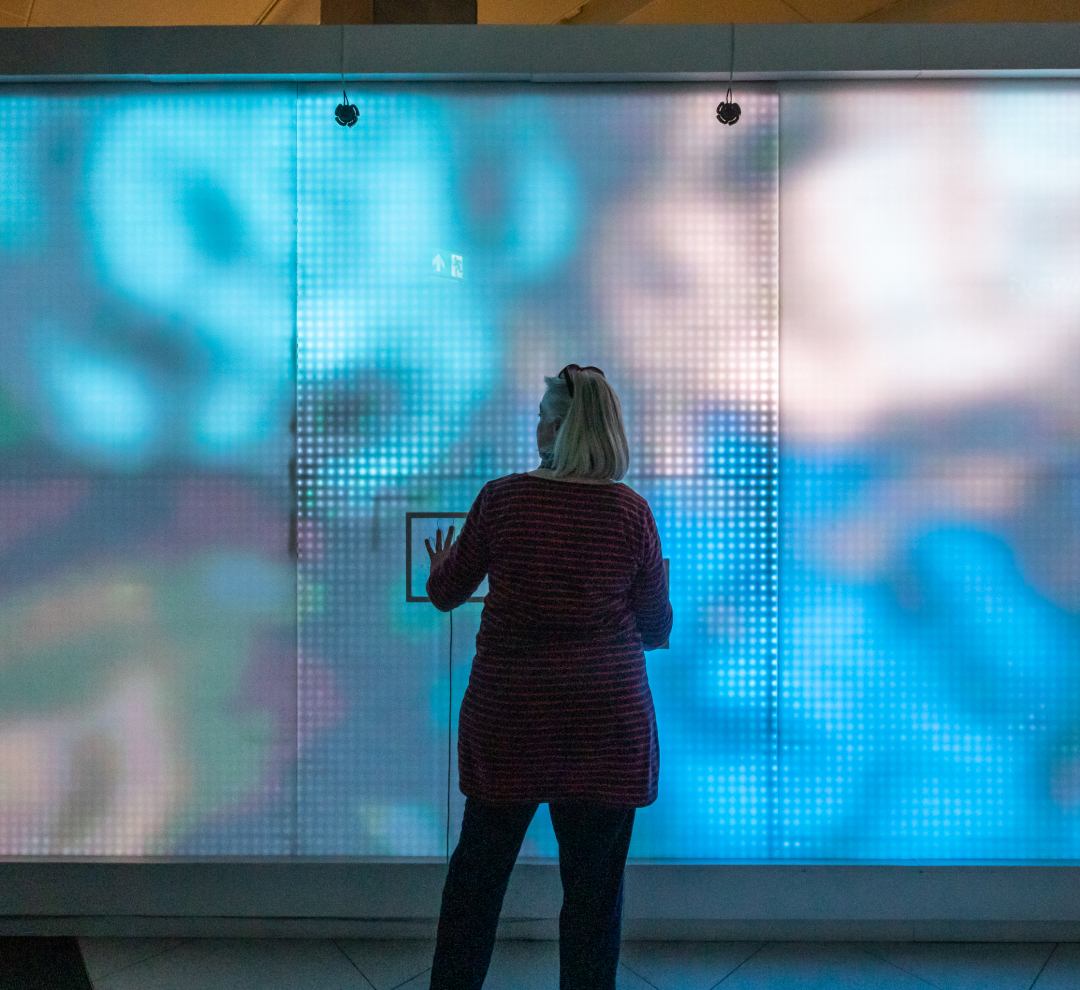Collective Text is a Scottish disabled-led social enterprise providing integrated access tools for creative industries. They operate on a circular model, providing creative access services & consultancy to artists and arts organisations across Scotland, the UK and internationally. In turn, they provide paid opportunities and skills training to their membership.
Their core committee comprises 6 people, including 5 disabled & 2 Deaf BSL users, with a membership of 30 creative access workers, prioritising Scotland-based artists from disabled/ Deaf communities.
The enterprise delivers innovative access offerings such as integrated sound descriptive captions (CC) (subtitles including soundtrack translation), audio description (AD) (sonic description of visual content), creatively developed with artists and organisations to design bespoke tools and access consultancy which better allow users to access and appreciate art with sympathetic and content- appropriate designed access delivery which matches the creativity of the original content. They are the only company currently making CC and AD in Scotland with a commitment to consistent creative involvement of people who most rely on these access tools, such as Deaf BSL users.
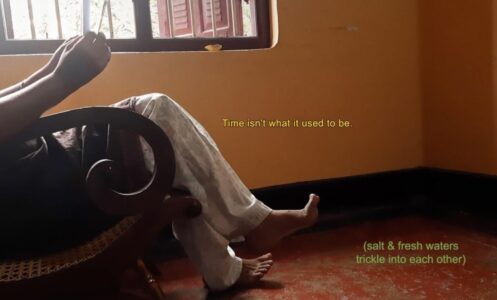
Image: Still from If From Every Tongue It Drips, a film by Sharlene Bamboat
In practice, Collective Text provides access text that integrates with the content of the work it describes and communicates, and brings it to life more vibrantly, accessibly, and artistically than traditional subtitling processes. They use elements including timing, animation, and colour to bring Deaf audiences the enriched experience of understanding the soundtrack in much more subtle and embedded ways.
Collective Text applied to the Community Creative Tech Fund to develop two new workstations in order to expand their creative accessibility offerings and further their mission to create “access abundance”, as well as to provide paid training and employment opportunities to more disabled people in Scotland.
Their award was used for both facilities, securing and allowing an expansion of their existing rented workspace for a further three years, and to purchase equipment necessary to build a dedicated Creative Audio Description (CAD) Station and Animation Station including SubPac resource.
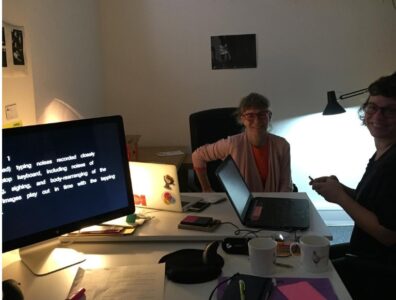
Image: Members of the Collective Text team captioning a film
As a disabled led organisation, the short time frame in which the awarded funds needed to be completed posed some difficulties for the team to work with as they need flexibility and space due to their fluctuating capacity, struggling to find a space within the timeframe that suited all of their access needs, which impacted their ability to collect and process data and audience feedback from their projects. However, suitable space was found within the funding timeframe, and the capital has proved beneficial in giving the organisation long term sustainable support from having a stable work environment which will have an expansive impact as time goes on. As the collective is made up of mainly marginalised people, having a stable work environment and access to work and training opportunities is difficult to find in this current climate, so having this space and equipment has given Collective Text the opportunity to provide this on a longer term basis to their members.
“The funding has allowed us to develop new work processes and outcomes that will specifically benefit audiences who rely on access tools to meaningfully engage with artwork.” – Tom Marshallsay
Having previously had to outsource some of their animation and audio description processes, the hardware and software purchased with the capital funding allowed the team to produce such work themselves, and share their skills in public forums such as art festivals, online resources and through panel discussions. The quality of the hardware provided for the animation station in particular has led to increased efficiency in the application of projects, cutting the time spent on them considerably and freeing up time for other activities and wellbeing.
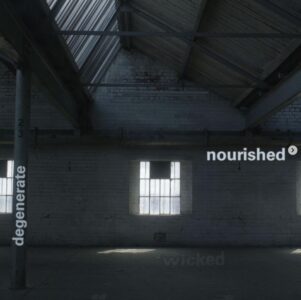
Image: A still from ‘a so called archive’ by Onyeka Igwe
One thing that is often forgotten by non disabled people is how valuable their personal resources of energy and time are, so this increase in efficiency saves labour time and creates a healthier work practice for the team.
Thus far, Collective Text have delivered eight audio description tools using equipment and software provided by the investment; trained three collective members to use the Audio Description hardware and trained one deaf collective member to voice audio description scripts; and they are undertaking training in using the animated caption station so that they can extend the impact of this equipment through skill sharing. The investment has enabled them to deliver two large integrated access films: ‘A Radical Duet’ by Onyeka Igwe, (which premiered at the London Film Festival), with animated captions and audio description; and ‘A Bedroom For Everyone’ by Ed Webb Ingall with integrated captions in four languages which will be touring Scotland in 2024, including in Edinburgh (meeting our aim of reaching new audiences in Edinburgh and South East Scotland). They have also begun experimental animated captions testing on another large film project for release in Scotland in 2024. This is innovative, industry leading work, providing access in new ways through creative captioning which could not have been achieved without capital funding.
Through this investment, Collective Text are developing and learning more meaningful and innovative ways to create access tools, an approach which can be undervalued across other areas of the Creative Industries and wider communities. In doing this, the organisation hopes to raise awareness and advocate for embedding access in projects from the beginning of the process. Access is needed universally and any context or domain could benefit from their ethos and approaches.
